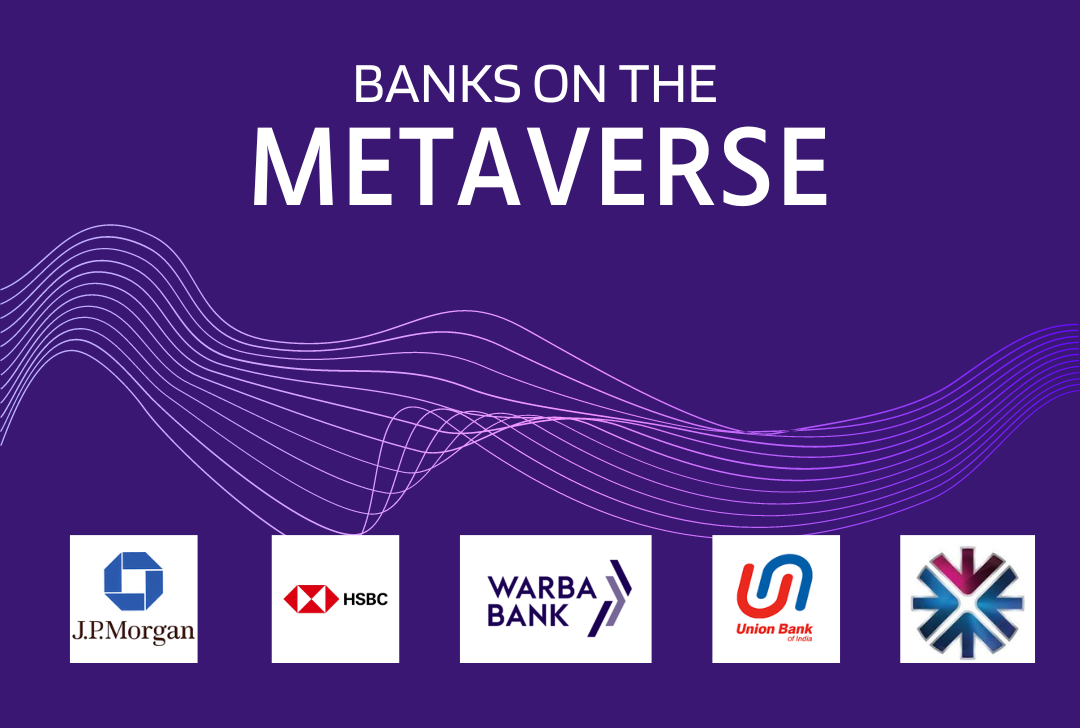Banking in the Metaworld or Metaverse as it is better known has become a major trend in the world of finance. The primary draw of this method is that it offers a way to hold money securely without having to go through traditional banking settings. More and more banks are seeking to establish themselves in the virtual world, whilst providing a safe and secure place to store all of your assets.
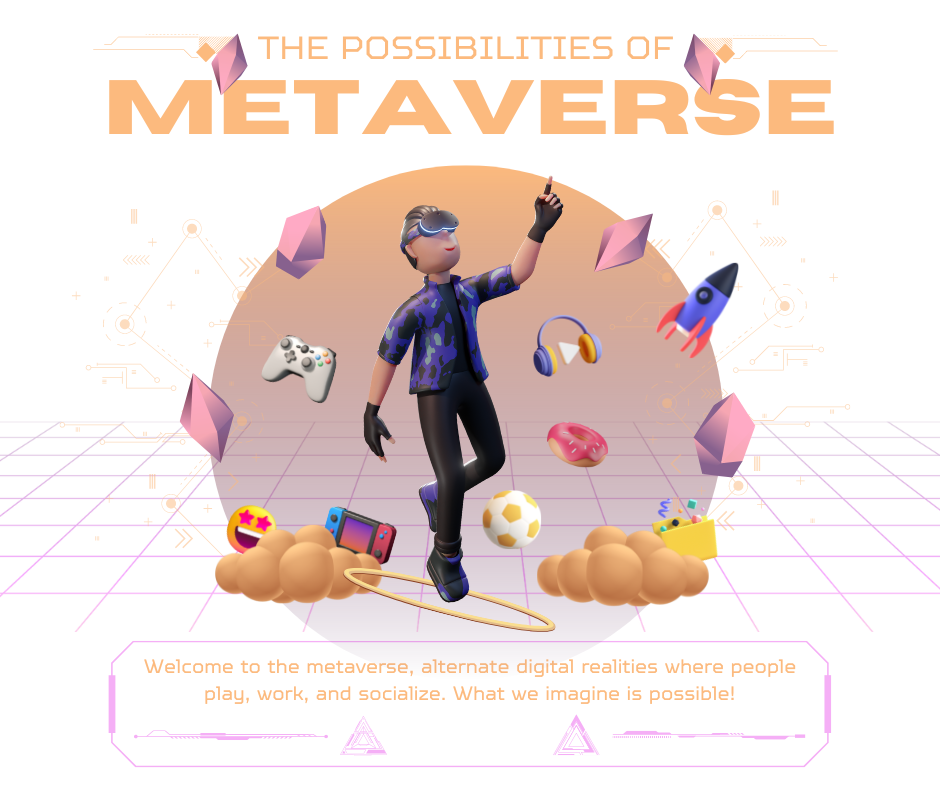
We have yet to encounter a concept evolve quite as quickly as the metaverse as it is one of the most revolutionary and continually evolving technologies that we have ever seen. The phenomenon of extended reality (XR) has been around for some time, but there has been a recent explosion of interest in the topic and some analysts are predicting there to be a $8 trillion industry.
Online virtual gaming has taken off since the pandemic with more people turning to online gaming during lock-downs. with the percentage of gamers aged 55-64 growing by 32% in just two years. The industry has soared with a global revenue of $154 billion in 2021 a record 21.9 percent growth compared to the previous year and it is expected to reach a value of USD 314.4 billion by 2026 . While the pace at which the metaverse is expanding beyond gaming is unknown, we do know that this next frontier is coming fast and is forecasted to be a Trillion dollar industry by 2030.
And in a world where bank profits are always at risk of being lost, the fear of missing out on big profits is bigger than ever they will undoubtedly be taking advantage of this opportunity and many have already begun. Banks need to consider how this will transform the fundamentals of their business and even the ways that we live in order to stay as relevant and profitable as possible.
Many banks are now starting to jump on the metaverse bandwagon, vying for their position in the metaverse lands like Sandbox and Decentraland. Other banks are creating their own virtual reality lounges and services.
Santander Joins In
Santander one of the most well-known banks in the world is one of the latest banks to take part in the growing trend of banks joining virtual reality. The company plans to hold an award ceremony entirely within a virtual reality environment on the14th July 20224:00 pm CEST / 10:00 am EST Decentraland – Santander X (-68,-118)
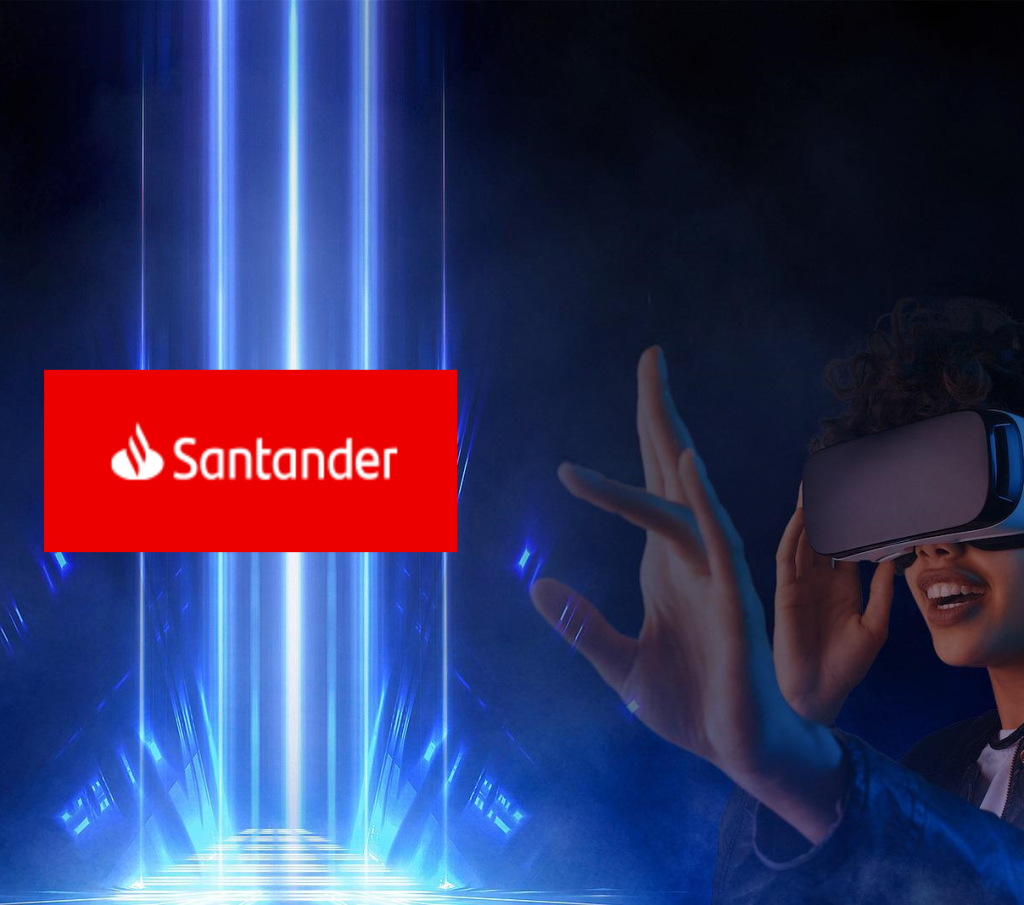
The Ceremony is the grand finale of a competition that took place in collaboration with Oxentia Foundation. This year, the total number of entries sent to the jury was around 400. The deadline for submission was June 9th, 2022, after which 20 finalists were selected by an international jury. Six winners are set to share in a reward of €120,000 – three winning startups will receive €10,000 each and three winning scaleups will receive €30,000 each. They will also have the opportunity to become part of the bank’s global entrepreneurship community Santander X 100. As a member, they will have access to a variety of resources which will allow them to grow their business: for example, advice and training, capital, customers, talent and networking opportunities. They’ll also have the chance to tap into other valuable resources available as well.
Santander has been getting into Bitcoin too. Banco Santander has been preparing since November to launch Spain’s first Bitcoin ETN. Much of this is likely as a result of customers demanding it. Ana Botín, Executive Chairperson at Banco Santander told me that “this is being driven by customer demand.”
How banks use metaverse? metaverse banking use cases
The first phase of the digital revolution has already had a profound impact on the financial industry. The increasing prevalence of online banking, mobile banking and social media have changed the way that people interact with banks. It took some 15 to 20 years for online banking to take off. After that it was five to six years until the mobile banking took off. Now we have finally gotten used to trust online banking, banks are now ready for the next step – The Metaverse.
With 47% of bankers believing that their customers will be making transactions via augmented reality or virtual reality by the year 2030, it’s no surprise to see early industry leaders venturing into these uncharted territories. As customers start to become more comfortable with modern technology and the way they can be a part of a transaction experience without ever physically stepping into a building, it is not difficult to envision people being able to walk into a bank without leaving their homes!
The Metaverse is an exciting and endless opportunity, one where endless possibilities and applications await. Citi began to experiment in 2016 with Microsoft’s HoloLens holographic headset, building a virtual workstation that lets traders view data as 3D images. This has allowed Traders to use hand gestures and voice to drill further into market segments.
We also see incredible possibilities to elevate the employee experience. Employees play a critical role in amplifying a bank’s brand and driving meaningful interactions with customers. Immersive training, like Bank of America’s deployment of VR training for 50,000 employees, simulates real customer service scenarios for branch employees so they can detect emotions and adjust behaviour in a risk-free environment.
Which bank is on metaverse?
Some of the latest banks to join the metaverse include the Islamic Bank, the Kuwait-based Warba Bank, and the Union Bank of India. These banks are just the beginning of an expected avalanche of banks to join the metaverse as there is no better way to bank than from the comfort of your home.
Warba Bank – Kuwait
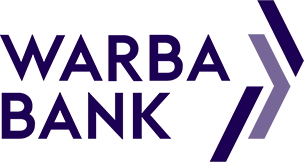
Warba Bank is the first Islamic bank in the Middle East to announce their presence in the Metaverse, at the beginning of July 22. Offering both personal banking and corporate banking as well as investment banking & management they hope that they will be able to enhance communication with younger users who are more likely to be interested in a multi-platform banking experience. The bank has claimed its place on two of the most popular metaverse worlds, Decentraland and Sandbox.
After their metaverse entrance, Anwar Bader Al-Ghaith, Warba Bank VP for Support Services and Treasury explained:
“Warba Bank’s interest in entering this virtual reality comes within the framework of digital trends to transform into a [Web3]. The world of virtual reality is used in several advanced fields, including services, education, health and others. And Warba Bank aims to be close to its clients in virtual reality to introduce its products and services, as well as communicating with them in an innovative way that reflects Warba Bank’s image as a pioneer in digital transformation.”
Union Bank of India

State-led Union Bank of India (UBI) announced on July 8 2022 that it has launched a virtual lounge for customers to get a taste for its product offerings in the Metaverse. This is the first Indian Bank to offer this service in the Metaverse. They are leading the charge as rumors and big news has been brewing in the Indian blockchain community. The country’s largest lender, State Bank of India (SBI), is set to launch its Metaverse storefront. The move will be a huge step forward for India’s position in the world of technology.
“Uni-verse, the Metaverse virtual lounge of the bank, hosts the bank’s product information and videos in the initial phase. Uni-verse will deliver a unique experience of banking to the customers who can roam around the lounge, get information of the bank’s deposits, loans, government welfare schemes, and digital initiatives as if they are experiencing the real world. This initiative is in partnership with Tech Mahindra,”Ms. A Manimekhalai, MD & CEO, Union Bank of India confirmed. ”Further, with the launch of Sandbox, Bank is ushering into Open Banking environment which will not only turn Third Party developers’ innovative ideas into reality but will also pave path for new avenues.”
The bank is rolling out 75 new digital banking units (DBU -a specialised fixed point business unit/hub housing certain minimum digital infrastructure for delivering digital banking products & services) in 75 districts to commemorate 75 years of India’s independence. that will also showcase the Metaverse lounge. They said this will be a perfect, public exhibit of future possibilities and give an opportunity to all to take part in this new reality, they said.
We can see how important it is that banks stay ahead of the curve as in other Indian banking news the Reserve Bank of India (RBI) said on July 7th 2022 that it has cancelled the license of Shri Anand Co-operative Bank, Chinchwad, Pune as the lender is running out of money and will not be able to pay all of its depositors.
JP Morgan
Other banks include the US-based JPMorgan Chase & Co who achieved this feat earlier this year in February.

JP Morgan made history by becoming the world’s first bank to set up shop inside the digital world of the metaverse in February 2022. JP, The largest bank in the US has opened a lounge in the blockchain-based world Decentraland. Users can now create their very own custom avatar, build their own virtual space, and wander through the virtual lounge area. They named it ‘Onyx Lounge’ after the stone that offers its bearer immensely powerful vibrations of protection, willpower, focus and strength and after its suit of ethereum-based services that was launched in 2020. Notably, this move represents an about-face in strategy because the CEO of JPMorgan Chase, Jamie Dimon, who has been historically skeptical of crypto assets and their underlying technology, Bitcoin once allegedly described it as “worthless.” It’s no secret that the blockchain has been in a bit of a slump lately, and many have been sceptical about its usefulness for anything other than cryptocurrency. But it seems he has changed his tune now as he admits that the blockchain does have some use cases for finance. Now when new visitors arrive at the Onyx Lounge, a digital portrait of Jamie Dimon is waiting to greet them.
The bank published at the same time a report on the opportunities in the metaverse, which they plan to leverage by creating a presence in the virtual world. “The metaverse will likely infiltrate every sector in some way in the coming years, with the market opportunity estimated at over $1 trillion in yearly revenues,” the report read. JPMorgan is also looking into the development of the metaverse and believe that it is evolving too quickly to be able to predict a strategy for it.notwithstanding this, it said that the cost of eliminating the risk of “being left behind” is more than offset by the minimal incremental cost involved in getting started.
HSBC
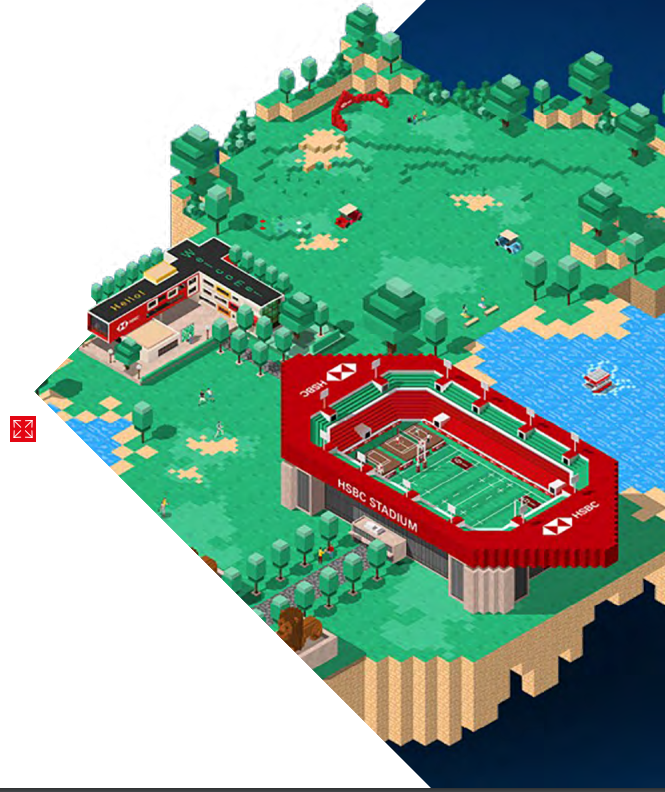
HSBC has entered the metaverse world after striking deal with The Sandbox. HSBC may be shutting down physical branches in the real world but it is on a mission to expand in the virtual one. The Hong Kong-based bank has bought a plot of digital land for an undisclosed sum in The Sandbox metaverse, which will be developed to engage and connect with sports, esports and gaming enthusiasts.
Suresh Balaji, chief marketing officer for Asia-Pacific at HSBC, said the bank saw “great potential” to create new experiences through emerging platforms, such as The Sandbox. “The metaverse is how people will experience Web3, the next generation of the Internet — using immersive technologies like augmented reality, virtual reality and extended reality,” he said.
Remember when you had to painstakingly create curated playlists of songs for your Walkman? Would you ever have envisioned the almost limitless access to music we have through streaming services today?
Follow HSBC along the yellow brick road as we visit every corner of Web 3.0, and uncover the inherent characteristics that make it such a hotbed for innovation. Learn about the most popular applications of Web 3.0, such as the Metaverse. We are interested in investigating the hurdles to mass adoption and the role that financial institutions can play in this new economy whilst they straddle the traditional and decentralised world.
On the Yellow Brick Road to Web3 and the Metaverse
KB – Kookmin Bank, South Korea

South Korea’s KB Bank has jumped on the bandwagon too. The KB Financial Group is a multinational financial group that is headquartered in Seoul, South Korea. As of the end of 2019, it had total assets of about $431 billion and operates throughout the country. Ranked as the 60th largest bank in the world their embrace of the metaverse has been a significant proponent of the metaverse with the Seoul Metropolitan Government (SMG) announcing that Seoul will become the first major city to enter the virtual realm. The South Korean government has invested a considerable amount of money in a project that intends to create an immersive virtual reality world that is powered by the blockchain. This initiative has received 3.9 billion won (or $3.2 billion) worth of funding and it is projected to be operational by 2023, the year during which residents of South Korea will be able to take advantage of administrative services such as opening accounts, financial transactions and more.
Jinsoo Yoon, Vice President of Tech Group at KB Kookmin Bank, said adaptation to the new technological era is a step that must be taken. “The purpose is to pre-emptively respond to financial changes in the coming metaverse era and to internalise new financial service experiments and technological capabilities,” Yoon said.
A number of private banks have made it their goal to be one of the first movers in this industry, by investing in emerging technologies like artificial intelligence and virtual reality.
BNP Paribas
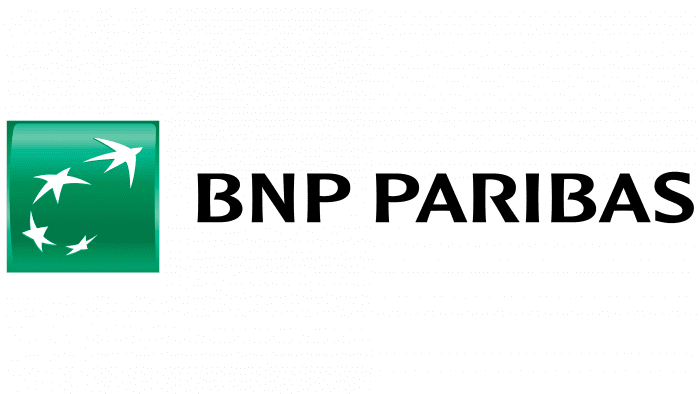
BNP Paribas -The bank for a changing world which began rolling out virtual reality-based services designed to improve and streamline the Customer Journey as early as 2016 has recently announced in June 2022 that the first steps have been taken into the Metaverse with W.I.R.E.D. (Wearable Immersive Real Estate Dataroom). This digital clone of the city is a first on the market and devoted to BNP Paribas Real Estate clients. The digital twin project that looks at a city in the past, present and future. This real estate analysis and forecasting tool uses data to reproduce past developments and anticipate future changes in cities, thereby providing a virtual immersion into a city’s heart.
They are also promoting a ”Enter the Metaverse” Theme for their wealth management clientele as a long term high risk/gain investments Claiming that the virtual world will soon influence large swathes of our life (entertainment, gaming, lifestyle, education, financial services). Focus on virtual identities, social networks and immersive experience, likely supported by Blockchain technologies.
Quontic Bank – New York

Quontic Bank is yet another private bank that launched in May 22 it’s branch in Decentraland.
“Quontic was the first bank to offer Bitcoin rewards on checking accounts, the first to offer a wearable payment solution, and now, the first to open an outpost in the Metaverse,” said Steve Schnall, CEO of Quontic Bank. “Banking once required consumers to visit a location and rely on printed documents to manage their money with personal support from a teller, today we carry all of that power in our pockets on an app, but the experience is cold. In the not so distant future our customers will have the best of both worlds and this outpost is the first step towards that level of service.”
With Security as their top priority, they offer arrange of savings and checking and CD accounts not only come with convenient online and mobile access but some of the best APYs in banking. These are now available on the metaverse as well as limited amount of NFTs.
Commercial Bank International – UAE
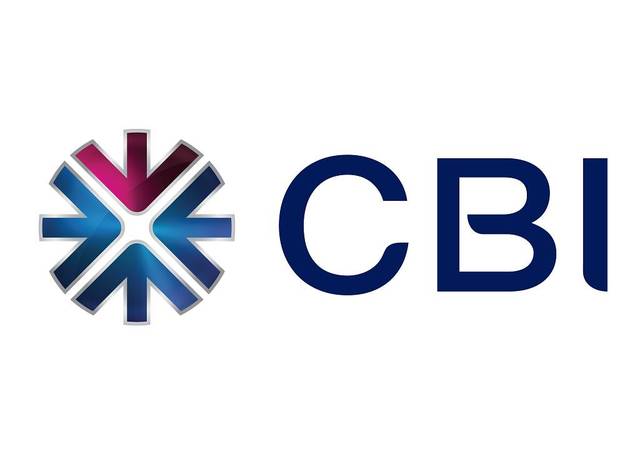
As the UAE continues to digitise its economy, Commercial Bank International (‘CBI’ or ‘the Bank’) has set its eyes on the metaverse, announcing it is the first bank in the country to launch a virtual location in it.
CBI, a UAE based corporate and retail bank, is the first bank in the UAE and among the first early adapter banks in the Middle East region as well, to open a virtual metaverse location in Decentraland, a blockchain-based world.
Ali Sultan Rakkad Al Amri, the CEO of CBI said: “We are proud to be the first ever bank in the UAE and among the first innovative banks in the Middle East region to bring the metaverse experience to our customers and people, which we believe is a strong testament to our strong support and belief in the country’s vision in being a leader in innovation worldwide. To keep pace in an increasingly digital economy and re-invent customer experience with a digitally driven perspective, we believe that the financial services sector must take some courageous and innovative steps, and we wanted to take part in this journey and become the first mover through an immersive metaverse experience. We aim to enhance the integration of real and digital worlds, and we will continue to implement new digitisation initiatives and advance technologies to serve our customers better”.
Conclusion
Banks and other brands will find themselves quickly becoming obsolete if they fail to evolve with the times. Banks will need to find new ways to build trust and work to proactively connect with communities across various digital spaces, such as the Metaverse. If they do not, they can expect to see themselves left behind in a world where it is possible for consumers to just “forget” that they exist. For inspiration, they should look at how other industries are deploying the metaverse and what they are doing to increase trust in this ever-changing space. Think about Nike’s recent acquisition of RTFKT to increase its credibility and speak authentically to the community. But proceed with caution, as making a wrong move could quickly break trust and this is crucial when it comes to marketing, and customers will quickly lose faith if they feel like they are being misled. One way that this can happen is through heavy use of automation without transparency. For banks, this new frontier has a lot of promise. The bottom line is that if you have not already started exploring the metaverse, now is the time to do so.

